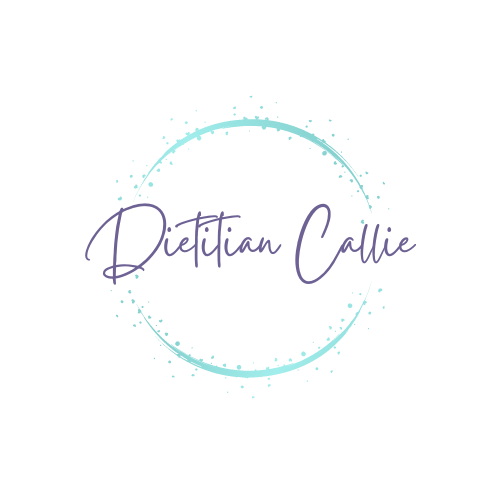Understanding Cortisol: Your Body’s Stress Response
As a registered dietitian, I often work with busy, stressed out working moms who are struggling with the effects of high cortisol levels. Cortisol is your body’s primary stress hormone, and it plays a crucial role in your stress response. When your brain perceives a stressor, whether it’s physical, emotional, or environmental, it triggers a cascade of events that ultimately leads to the release of cortisol from your adrenal glands.
Cortisol is designed to help you respond to stressful situations in one of four ways: fight, flight, freeze, or fawn. The “fight or flight” response is the most well-known, where cortisol provides the energy and focus needed to either confront the stressor or escape from it. The “freeze” response involves shutting down and becoming immobilized, while the “fawn” response is about complying or appeasing the source of the stress.
While cortisol is an essential hormone, the problem arises when it’s constantly being produced due to chronic stress. Prolonged high cortisol levels can have a detrimental impact on your metabolism, mood, energy levels, and overall health. That’s why it’s so important to find effective ways to manage and balance your cortisol levels.
Nutrition Strategies to Reduce Cortisol and Stress
There are certain nutrition and supplementation strategies that can be incredibly helpful in supporting your body’s stress response and balancing cortisol levels. In this blog post, I’ll share the top three nutrition tips that I recommend to my clients for managing stress and cortisol.
- Take a B-Complex Supplement with Vitamin C
One of the most important things you can do to support your body during times of high stress is to ensure you’re getting adequate B vitamins and vitamin C. Here’s why these nutrients are so crucial:
- B Vitamins: The B vitamins, especially B6, are essential for the production of calming neurotransmitters like serotonin. When you’re under stress and your body is constantly producing cortisol, it can deplete your stores of B vitamins. Replenishing with a high-quality B-complex supplement can help restore balance and support your nervous system.
- Vitamin C: Vitamin C is a critical nutrient for the adrenal glands, which are responsible for producing cortisol. When you’re under stress, your body’s demand for vitamin C increases, as it’s used up in the process of cortisol production. Supplementing with around 200-400 mg of vitamin C can help support your adrenal function and reduce the impact of stress.
The B-complex supplement I often recommend to my clients during times of high stress is the Thorn Stress B-Complex. It contains a highly bioavailable form of B vitamins.
- Prioritize Protein at Every Meal and Snack
Another crucial component of managing stress and cortisol levels is ensuring you’re getting enough high-quality protein in your diet. Protein contains amino acids, which are the building blocks for neurotransmitters like serotonin, dopamine, and adrenaline. These neurotransmitters play a vital role in regulating your mood, energy levels, and stress response.
I recommend aiming for 20-30 grams of protein per meal and 5-10 grams per snack. However, this number varies based on your health goal. You can use my protein calculator to estimate your protein needs on my resources page (scroll down to the bottom of the page!). This can come from a variety of sources, including lean meats, poultry, fish, eggs, dairy, legumes, nuts, and seeds. If you’re following a plant-based diet, be sure to combine different protein sources to get a complete amino acid profile.
Protein-rich foods not only support neurotransmitter production, but they also help stabilize your blood sugar levels, which is crucial for managing stress. Consistent blood sugar levels can help prevent the energy crashes and mood swings that often accompany high cortisol levels.
- Eat at Consistent Time Intervals
The third and perhaps most important nutrition strategy for balancing cortisol is to eat at consistent time intervals throughout the day. Your body thrives on predictability, and when you skip meals or eat at irregular times, it can signal to your brain that you’re in a state of stress or scarcity.
Aim to eat every 3-4 hours, whether it’s a full meal or a nutrient-dense snack. This could look like breakfast at 8 am, a snack at 11 am, lunch at 12 pm, a snack at 3 pm, and dinner at 6 pm. By keeping your eating schedule consistent, you’re providing your body with the predictability it craves, which can help reduce cortisol production and keep your stress response in check.
I know that maintaining a consistent eating schedule can be challenging, especially for busy working moms. But even if you can’t hit the 3-4 hour mark every single day, try to get as close as possible. Consistency is key, and your body will thank you for it.
Putting it All Together: A Stress-Reducing Nutrition Plan
Now that you understand the importance of these three nutrition strategies, let’s put them into a practical plan that you can implement in your daily life:
Morning
- Start your day with a B-complex supplement and 200 mg of vitamin C.
- Enjoy a protein-rich breakfast, such as eggs with avocado and whole-grain toast, or a smoothie with Greek yogurt, berries, and nut butter.
Mid-Morning Snack
- Have a snack that combines protein and complex carbohydrates, like a handful of nuts and seeds or a hard-boiled egg with a piece of fruit.
Lunch
- Opt for a meal that includes 20-30 grams of protein, such as a grilled chicken salad, a veggie-packed stir-fry with tofu, or a tuna sandwich on whole-grain bread.
Afternoon Snack
- Reach for a protein-rich snack, like Greek yogurt with berries, a hard-boiled egg, or a handful of roasted chickpeas.
Dinner
- Enjoy a balanced, protein-rich dinner, such as baked salmon with roasted vegetables and quinoa, or a vegetarian chili with beans and whole-grain cornbread.
By following this plan and incorporating the three key nutrition strategies, you’ll be well on your way to supporting your body’s stress response, balancing cortisol levels, and feeling more calm, focused, and energized throughout the day.
Conclusion
Chronic stress and high cortisol levels can have a significant impact on your overall health and well-being. But by implementing these three simple nutrition strategies – taking a B-complex supplement with vitamin C, prioritizing protein, and eating at consistent time intervals – you can help your body better manage stress and maintain balance.
If you’re ready to take on your cortisol levels and learn to balance your hormones, check out my Hormone Balance Formula course today! If you’re ready to work with me one-on-one to identify your imbalances and get to looking and feeling your best as a working mom, schedule an appointment with me today!

